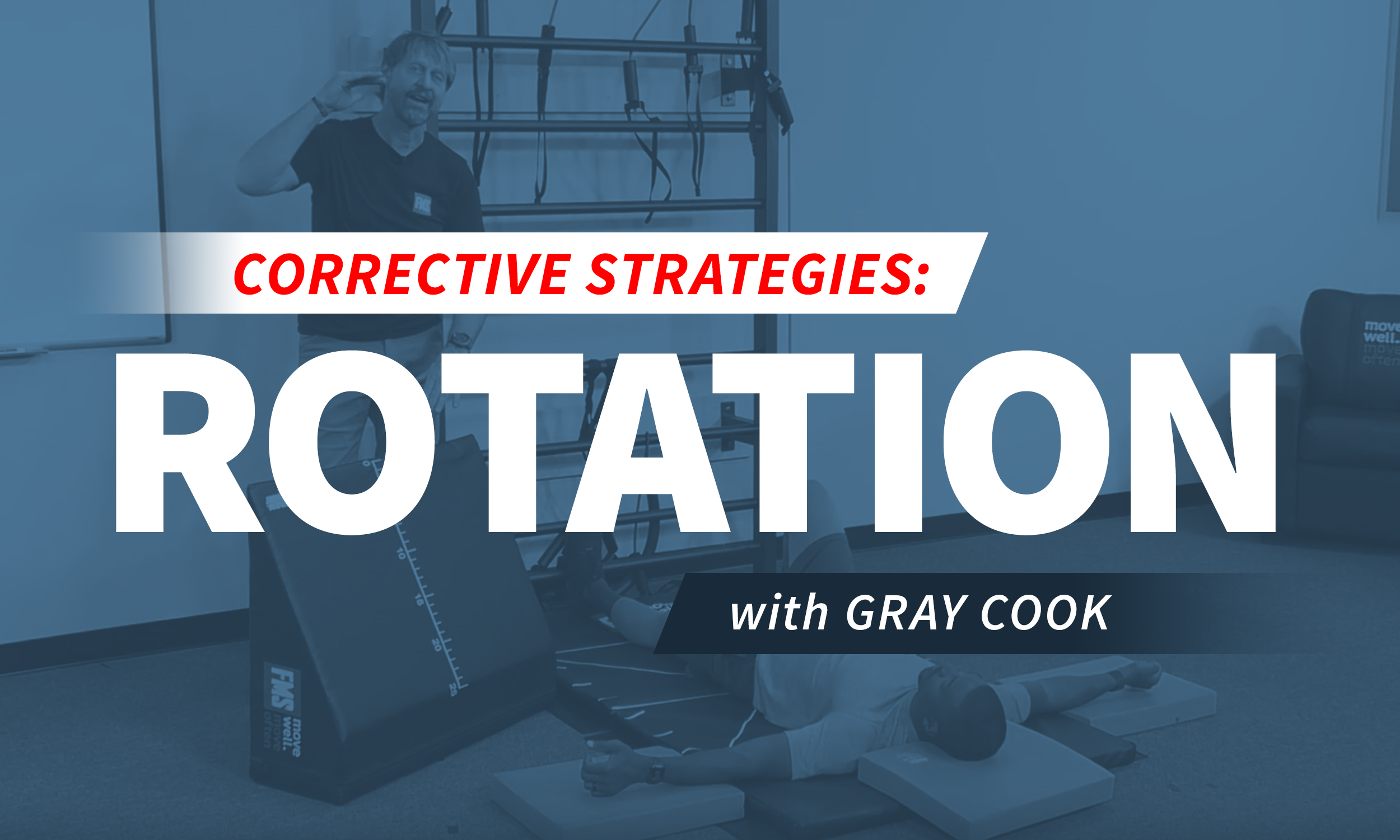
Description
Rebuild rotation. Rebuild performance.
Rotation is the developmental foundation of many human movements—yet it’s also where mobility and stability asymmetries often appear. These problems with turning, twisting, and weight shifting signal core imbalances that can be revealed through multiple FMS screens and assessments.
In this course, Gray Cook takes you through a practical progression designed to restore efficient rotation. Using variations of rolling, chops and lifts, and rotation drills with Indian clubs and kettlebells, you’ll learn how to reduce unnecessary tension, improve alignment, and reestablish proper dissociation and (re)association of the upper and lower body.
You’ll also gain insight into how to differentiate tissue problems from tone issues, and why proper breathing is essential for rotational integrity. Whether you work with everyday clients or athletes in swinging and throwing sports, this course equips you with the tools to identify dysfunctions and correct them at the right postural level.
Leave with the Ability to:
- Identify core imbalances — recognize mobility and stability asymmetries revealed through FMS screens and assessments.
- Differentiate causes of dysfunction — distinguish between tissue problems, tone issues, and breathing-related limitations.
- Apply progressive rotation drills — use rolling, chops and lifts, and Indian club and kettlebell variations to restore efficient patterns.
- Rebuild fundamental movement connections — improve dissociation and (re)association of the upper and lower body.
Sneak Peek of This Course!
Get the Complete Corrective Strategies Series!
Access the full Corrective Strategies Series with our bundle option! This collection explores the FMS approach to identifying and correcting movement dysfunctions across key patterns, including Hip Hinge, Upper Body, Balance, and Squat.
Each course highlights the differences between SFMA, FMS, and Symmio assessments, then progresses into corrective exercises organized by both the developmental hierarchy (Supported, Suspended, Stacked, and Standing) and the ABCs principle (Awareness, Breathing, and Control). Reactive Neuromuscular Training (RNT) is used throughout to engage motor learning—or as Gray Cook calls it, “motor remembering.”
With the addition of Symmio, you’ll also gain insights into self-screening and how non-musculoskeletal lifestyle factors impact overall movement health and wellness.
The FMS Corrective Strategies Series provides a clear test–correct–retest framework you can integrate seamlessly into your work. More than addressing isolated body parts, this series shows you how to identify and correct movement issues at the edge of ability—within patterns and in a rich sensory environment.
